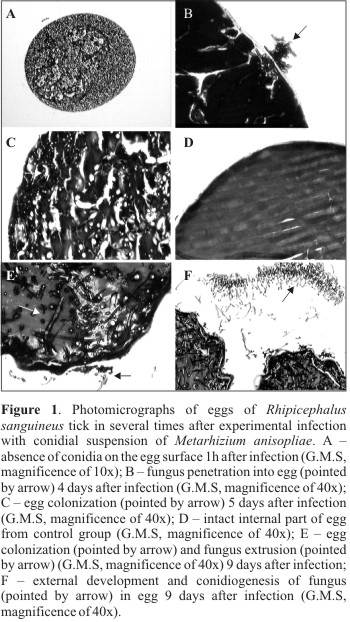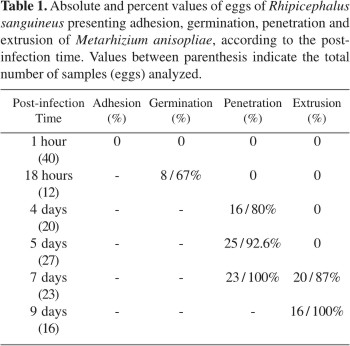The present work aimed to verify the penetration pattern of the Metarhizium anisopliae fungus into Rhipicephalus sanguineus tick eggs, as well as the lesions occurred inside the egg. The fungus adherence and penetration were studied by scanning electron microscopy and the action of fungus in the internal tissues was evaluated through conventional histological sessions. For the observation of these events, experimental infections were performed in 11 groups of R. sanguineus eggs containing 25 mg each. The eggs were bathed during 3 minutes under manual shaking in a 10(8) conidia/mL suspension. The bath was performed only in the suspension vehicle for the control groups. The eggs were processed for histopathological analysis and scanning electron microscopy at the following times after infection: 1 and 18h and one, two, three, four, five, six, seven, nine and eleven days. Relevant conidial germination was observed in 67% of eggs 18h after inoculation and fungus penetrated in 92.6% of eggs 5 days after the infection. The pathogen extrusion occurred in 87% of eggs 7 days after infection, reaching 100% at the 9th day. In the histopathological analysis, no lesions worthy of record was observed, however, it should be emphasized that significant reduction (53.9%) of hatching from infected eggs was observed.
biological control; microbial control; entomopathogenic fungus; ticks



